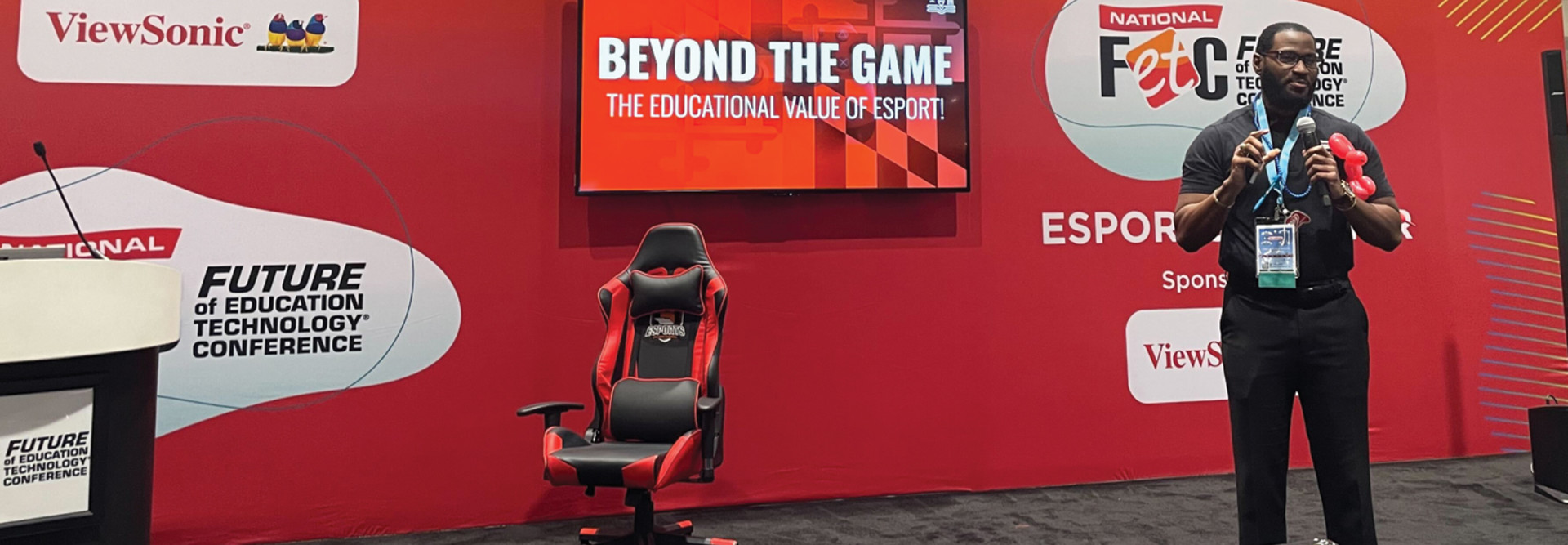Esports Coaches Are Solving Connectivity and Funding Challenges
Scott Barba, a STEM teacher and esports coach at East Valley High School in Washington, started his session with information on streaming esports matches. However, in the more casual setting of Wednesday’s roundtable, the conversation soon turned to troubleshooting.
Spencer Stone wanted to know more about competitive gameplay on Nintendo Switch devices. Stone, director of the computer science department and esports coach at Alabaster City Schools in Alabama, outlined problems getting the devices on the network for certain game titles.
Jacob Mantle, meanwhile, had questions about getting funding for his team. As a middle school social studies teacher at Warren County Public Schools in Kentucky, he noted that he was lucky to secure ESSER funds for three computers that his students can use to competitively play Rocket League.
Barba answered all their questions, calling at one point on Kevin Bound, IT director for East Valley High School, who happened to stop by. Bound spoke with Stone about possible solutions to his problem with the Switches, and he shared that East Valley High School uses Cisco Umbrella for content filtering. He suggested that Stone could try to create a custom filtering profile for the specific virtual local area network his district is using.
Both Mantle and Stone shared ways they had approached some of their own challenges, highlighting the effort both had put into the esports programs in their districts.
WATCH NOW: Network upgrades bring immersive experiences to K–12 students.
Why Are Esports Coaches Working Hard to Build and Improve Teams?
Attendees made it clear Tuesday in Gordon’s session why they’re so determined and willing to put in the extra work for esports. As Gordon called on audience members to share their thoughts, one said, “It’s about meeting students where they’re at. It’s the future.”
The sentiment echoed advice Gordon had shared with listeners. Esports helps get students involved, particularly those who wouldn’t otherwise have an after-school program that grabbed their interest. To compete, they need to meet academic and behavioral standards.
Educators are putting in the effort as coaches because esports keeps students engaged in school, gives them an outlet and brings communities together.
To ensure you don’t miss a moment of FETC event coverage, keep this page bookmarked and follow @EdTech_K12 on Twitter for live updates and behind-the-scenes looks.











